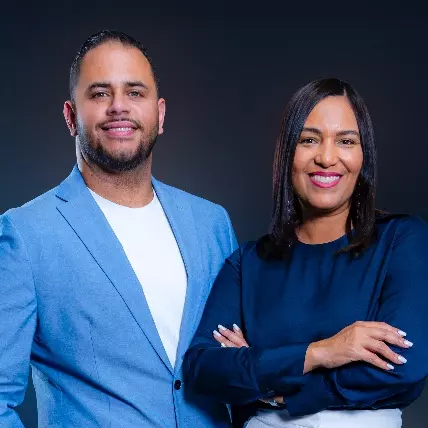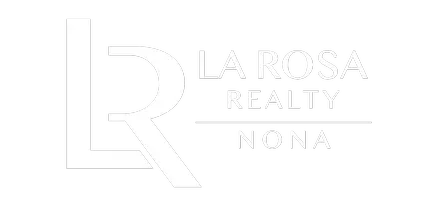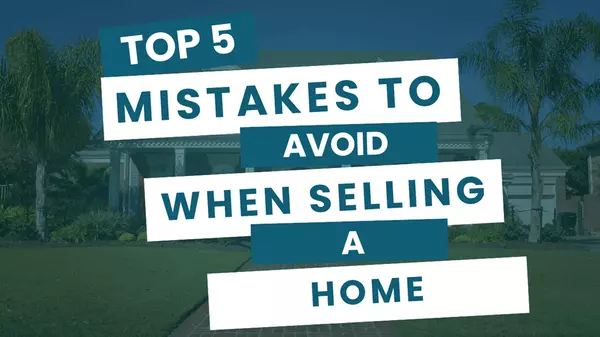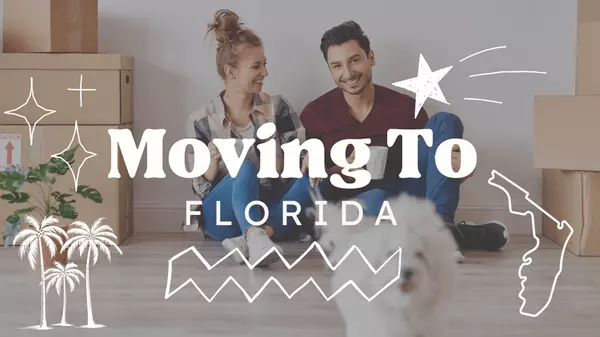Buying a Home in Central Florida: What You Need to Know in 2025

Your Central Florida Home Journey Starts Here Central Florida continues to attract homebuyers from across the nation, and for good reason. The region offers year-round sunshine, a thriving job market, world-class entertainment, and communities that blend urban amenities with suburban comfort.
Why Central Florida stands out from other Florida regions comes down to opportunity and diversity. Unlike South Florida's high-density living or North Florida's slower pace, Central Florida strikes the perfect balance. You'll find everything from bustling tech corridors in Orlando to peaceful lakefront communities in Winter Haven.
The 2025 market presents unique opportunities for prepared buyers. While home prices have stabilized after years of rapid growth, inventory is higher than in recent years, offering more choices, but well-priced homes in desirable areas still attract strong interest. This means you'll need to move quickly when you find the right property, but you won't face the bidding wars that defined 2021–2022.
Setting realistic expectations starts with understanding that Central Florida's popularity means patience and preparation are essential. The average home search takes 60–90 days, and having your finances in order before you start looking gives you a significant advantage.
Get Your Finances in Order
Your credit score determines not just whether you qualify for a mortgage, but what interest rate you'll pay. In Central Florida's competitive market, strong financial credentials can make the difference between landing your dream home or losing it to another buyer.
Credit score requirements vary by loan type, but here's what you need to know. Conventional loans typically require a 620 minimum score, though rates improve significantly at 740+. FHA loans accept scores as low as 580 with 3.5% down, or 500 with 10% down. VA loans (for qualifying veterans) don't have strict score minimums but lenders typically want 620+.
Down payment requirements have become more flexible in recent years. Conventional loans require as little as 3% down for first-time buyers, while FHA loans need 3.5%. VA loans offer 0% down for qualified veterans, and USDA loans provide 0% down in eligible rural areas of Central Florida.
Closing costs in Florida typically range from 2–5% of the purchase price. On a $400,000 home, expect $8,000–$20,000 in closing costs. These include title insurance (required in Florida), appraisal fees, inspection costs, and lender fees.
Personal Experience: I've seen buyers lose their dream homes because they underestimated closing costs. Always budget an extra $2,000–$3,000 beyond the estimate for unexpected expenses.
Your debt-to-income ratio (DTI) should stay below 43% for most conventional loans, though some programs allow higher ratios. Calculate your DTI by dividing monthly debt payments by gross monthly income.
Emergency fund planning becomes crucial in Florida due to hurricane season and potential evacuation costs. Financial experts recommend 3–6 months of expenses, but Florida homeowners should consider the higher end of this range.
Navigating Central Florida's Diverse Markets
Central Florida's real estate landscape varies dramatically by location, with each area offering distinct advantages and price points. Understanding these differences helps you target your search effectively.
Orange County anchors the region with Orlando's urban core. Expect median home prices around $425,000–$500,000, with downtown condos reaching $300,000+ and suburban single-family homes in desirable school districts climbing toward $600,000.
Seminole County offers some of Central Florida's best schools and family-friendly communities. Areas like Winter Springs and Oviedo command premium prices
($450,000–$650,000) but deliver excellent long-term value through strong appreciation.
Lake County provides more affordable options while maintaining growth potential. Cities like Clermont and Mount Dora offer median prices around $400,000+ making them attractive for first-time buyers and those seeking more space for their money.
Emerging markets include areas like Winter Haven, Haines City and Lakeland, where new construction communities are transforming formerly rural areas into master-planned developments. These areas offer modern amenities at relatively affordable prices ($300,000–$400,000).
Commute considerations heavily influence property values in Central Florida. Proximity to major employers like Disney, Universal, AdventHealth, and the growing tech sector in Lake Nona adds significant value to nearby communities.
School districts create another layer of complexity in Central Florida's market. Orange County Public Schools offers magnet programs and highly-rated options in areas like Dr. Phillips and Windermere. Seminole County Schools consistently rank among Florida's best, contributing to higher property values but also stronger resale potential.
Protecting Your Investment with Proper Insurance
Florida's insurance landscape has become increasingly complex, making proper coverage selection critical for protecting your investment. The state's hurricane risk and recent insurance market changes require careful planning.
Homeowners insurance serves as your primary protection, but standard policies in Florida often exclude wind damage from hurricanes. You'll likely need separate windstorm coverage, especially in areas near major water bodies like Lake Dora or low-lying neighborhoods with stormwater drainage concerns.
Hurricane and windstorm coverage has become expensive but essential. Annual premiums can range from $2,000–$8,000 depending on your home's location, age, and construction type. Newer homes with impact windows and reinforced construction typically qualify for better rates.
Flood insurance requires special attention in Central Florida. Even if you're not in a designated flood zone, the region's frequent afternoon thunderstorms and hurricane potential make flood coverage worth considering. Standard homeowners policies don't cover flood damage.
Reality Check: I learned this lesson during Hurricane Ian when friends in "safe" areas experienced flooding from overwhelmed drainage systems. Flood insurance costs $400–$800 annually for most Central Florida homes but provides invaluable peace of mind.
Shopping for insurance quotes should happen early in your home search process. Rates vary significantly between companies, and some insurers have stopped writing new policies in certain Florida areas. Getting quotes before making an offer prevents closing delays and budget surprises.
Coverage gaps often surprise new Florida homeowners. Standard policies may not cover sinkholes (a concern in parts of Central Florida), mold damage, or temporary living expenses during repairs. Consider umbrella policies for additional liability protection.
Florida's Tax Advantages and Legal Requirements
Florida's tax structure provides significant advantages for homeowners, but you'll need to understand the requirements to maximize these benefits.
No state income tax means more money stays in your pocket compared to high-tax states. This advantage becomes particularly valuable for high earners and retirees. Property taxes vary by county, with Orange County averaging 0.83% of assessed value and Seminole County around 0.91%.
The homestead exemption offers substantial property tax savings for primary residents. You can exempt up to $50,000 of assessed value from property taxes ($25,000 from school taxes, $25,000 from other taxes). Some counties offer additional exemptions for seniors, veterans, or disabled homeowners.
Qualifying for homestead exemption requires establishing Florida residency by January 1st and applying with your county property appraiser by March 1st. You'll need a Florida driver's license, voter registration, and proof that the home is your primary residence.
Property tax variations across Central Florida counties affect your total housing costs. Lake County typically offers lower rates (around 0.78%), while Osceola County runs slightly higher (0.94%). These differences can mean thousands of dollars annually on higher-value homes.
Florida's title search and closing process includes unique requirements. Title insurance is mandatory, and Florida typically uses title companies to handle closings, though attorneys may be involved depending on the transaction. The process typically takes 30–45 days from contract to closing.
Important inspections include standard home inspections plus Florida-specific concerns like termites, sinkholes (in certain areas), and hurricane preparedness features. A thorough inspection costs $400–$600 but can save thousands in future repairs.
Building Your Professional Support Team
Success in Central Florida's competitive market depends heavily on working with experienced local professionals who understand the region's unique characteristics.
Choosing the right real estate agent starts with finding someone who specializes in your target area. Central Florida's diversity means an agent who excels in downtown Orlando condos might not be the best choice for rural Lake County properties. Look for agents with recent sales in your price range and preferred neighborhoods.
Your agent should understand Central Florida's seasonal patterns, with peak buying season running from January through April when northern buyers visit. They should also navigate the area's new construction market, as many Central Florida communities offer both resale and new homes.
Working with qualified lenders familiar with Florida's insurance requirements and seasonal buyer patterns makes the process smoother. Local lenders often have relationships with area appraisers and title companies, potentially speeding up your closing timeline.
Local home inspectors provide crucial value in Florida's climate. They understand the region's specific issues like termites, foundation concerns related to sandy soil, and hurricane preparedness features. Experienced inspectors cost $400–$600 but their expertise protects your investment.
Reliable insurance agents have become essential in Florida's challenging insurance market. Work with agents who represent multiple companies and understand Central Florida's specific risks. They can often find coverage when direct-to-consumer shopping fails.
New construction builders deserve careful consideration if you're exploring newly-built homes. Central Florida has numerous active communities, but builder quality and customer service vary significantly. Research online reviews, visit model homes, and talk with recent buyers before committing.
Your Central Florida Dream Home Awaits
Successfully buying a home in Central Florida in 2025 requires preparation, patience, and realistic expectations. The region's continued popularity means you'll compete with other buyers, but proper planning gives you significant advantages.
Key takeaways for success include getting pre-approved before house hunting, understanding insurance requirements early, and working with experienced local professionals. The combination of Florida's tax advantages and Central Florida's growth potential makes homeownership here particularly rewarding.
Timeline expectations should account for 60–90 days from serious house hunting to closing, assuming you're pre-approved and have identified your target areas. Seasonal patterns mean spring buying requires faster decision-making, while summer and fall often provide more negotiating room.
Final preparation steps include securing pre-approval letters, researching insurance options, identifying your preferred neighborhoods, and assembling your professional team. Start these processes 2–3 months before you want to begin actively looking at homes.
Resources for continued research include county property appraiser websites for tax information, FEMA flood maps for flood zone data, and local school district websites for educational quality metrics. These tools help you make informed decisions throughout your search.
The investment you make in Central Florida today positions you to benefit from the region's continued growth, favorable tax environment, and quality of life advantages that attract new residents year after year.
Frequently Asked Questions (FAQ)
What's the average home price in Central Florida in 2025?
Median home prices vary significantly across Central Florida counties. Orange County averages $425,000-$500,000, Seminole County runs $450,000-$650,000, and Lake County offers more affordable options at $350,000-$425,000. Luxury markets in areas like Winter Park and Windermere can exceed $1 million, while emerging areas like Davenport, Haines City, and Winter Haven provide opportunities in the $300,000-$400,000 range.
How long does it take to buy a home in Central Florida?
The typical timeline runs 60-90 days from starting your serious house search to closing. This assumes you're pre-approved for financing and have identified target neighborhoods. The process breaks down to 2-6 weeks finding a home, 2-3 weeks for inspections and appraisals, and 2-3 weeks for final loan processing and closing preparations.
Do I need flood insurance if I'm not in a flood zone?
While not required outside designated flood zones, flood insurance provides valuable protection in Central Florida's climate. The region's afternoon thunderstorms and hurricane potential can cause flooding even in low-risk areas. Flood insurance costs $400-$1500 annually for most homes and covers damage that standard homeowners policies exclude.
What are the best months to buy a home in Central Florida?
Spring and summer are typically the busiest times to buy a home in Central Florida. Many families prefer to move during this window because children are out of school, making the transition smoother.
Should I buy or build a new home in Central Florida?
New construction often comes with a slightly higher price tag, but you're typically getting much more for your money, especially in today’s market. Many builders are offering attractive incentives like rate buy-downs and substantial closing cost contributions, which can significantly reduce your upfront expenses. While some homes are still in the 'to-be-built' phase and may take 4–6 months to complete, there's also a strong inventory of quick move-in homes available right now. On the other hand, resale homes offer the benefit of immediate occupancy and are often located in more established neighborhoods, though they may require updates or repairs.
How much should I budget for moving and initial setup costs?
Beyond your down payment and closing costs, budget $5,000-$10,000 for moving expenses, immediate home needs, and setup costs. This includes professional movers ($1,500-$3,000), utility deposits and connections ($500-$800), immediate maintenance items ($1,000-$2,000), and furnishing needs for your new space. Emergency fund recommendations suggest having an additional $3,000-$5,000 available for unexpected expenses during your first few months of homeownership.

Broker Associate | License ID: BK3272476
+1(407) 309-1885 | cesar@cmfloridahomes.com



